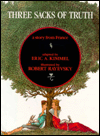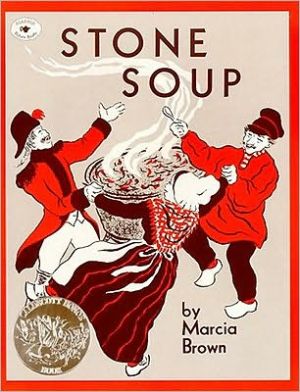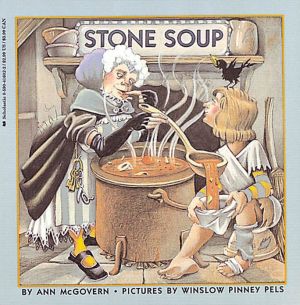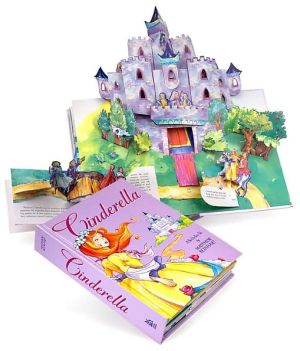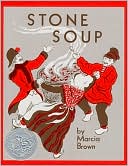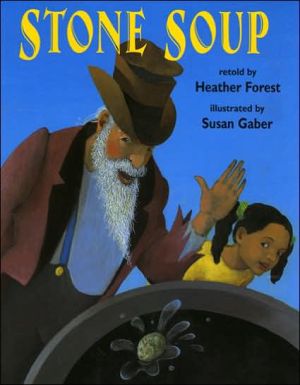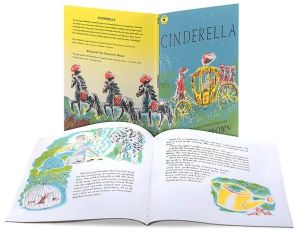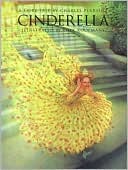Three Sacks of Truth: A Story from France
Search in google:
With the aid of a perfect peach, a silver fife, and his own resources, Petit Jean outwits a dishonest king and wins the hand of a princess.Publishers WeeklyPetit Jean, humble but clever, appears to have won the kingdom-wide contest for the princess's hand. But the dishonest king, intending to renege on his promise, sets the lad an additional, seemingly impossible task. In order to secure his nuptials, Jean must care for 10,000 rabbits for four days without losing a one--a feat he accomplishes by dint of both magic and wit, in the process having some goodnatured fun at the king's expense. In this crisp and sprightly interpretation, storyteller Kimmel takes full advantage of the plot's sly humor, which he accentuates through many colorful, deft turns of phrase--e.g., ``The king could not break his promise, but he could tie it in knots.'' The result is a tale that is at once traditional and fresh. Employing his typically lank figures, Rayevsky adds rich, predominantly earth-toned illustrations that emphasize character and expression with a slight ironic bite. Though a few are overly dark, almost muddy, in hue, they contain diverting details (one suitor, for example, sports a Native American headdress) and pack a narrative punch all their own. Ages 4-8. (Apr.)
\ Publishers Weekly\ - Publisher's Weekly\ Petit Jean, humble but clever, appears to have won the kingdom-wide contest for the princess's hand. But the dishonest king, intending to renege on his promise, sets the lad an additional, seemingly impossible task. In order to secure his nuptials, Jean must care for 10,000 rabbits for four days without losing a one--a feat he accomplishes by dint of both magic and wit, in the process having some goodnatured fun at the king's expense. In this crisp and sprightly interpretation, storyteller Kimmel takes full advantage of the plot's sly humor, which he accentuates through many colorful, deft turns of phrase--e.g., ``The king could not break his promise, but he could tie it in knots.'' The result is a tale that is at once traditional and fresh. Employing his typically lank figures, Rayevsky adds rich, predominantly earth-toned illustrations that emphasize character and expression with a slight ironic bite. Though a few are overly dark, almost muddy, in hue, they contain diverting details (one suitor, for example, sports a Native American headdress) and pack a narrative punch all their own. Ages 4-8. (Apr.)\ \ \ \ \ Children's Literature\ - Marilyn Courtot\ In this folktale, the king offers his daughter to the man who can find and bring to him a perfect peach. As in many tales, it is the youngest son of a poor woman who succeeds. The king sets up impossible tasks for the young man, but Petit Jean prevails and wins his bride.\ \ \ School Library JournalGr 1-4-- Aided by a silver fife and a perfect peach, the youngest son of a poor widow outwits a greedy king and wins the hand of the princess. Although this retelling is based upon a French folktale, variants exist in other cultures, such as the Norwegian ``The King's Hares,'' found in Stith Thompson's One Hundred Favorite Folktales (Indiana Univ. Pr, 1968). Kimmel has adapted Paul Delarue's ``The Three May Peaches,'' from the Borzoi Book of French Folk Tales (Ayer, 1980), strengthening the central conflict by making the king more villainous but weakening its impact by removing the earthy humor. In Delarue's version, the young man tricks the king into kissing a donkey's behind. Rayevsky's accompanying illustrations use several mediums: at times pastel pencil on a colored charcoal drawing paper, other times colored ink washes on white paper with Chinese white highlights. As in the past, the artist's pictures employ stylized, elongated figures but here the exaggeration of human features becomes almost grotesque, and the depiction of a half-skinned rabbit, while supported by the story, may strike some readers as gratuitous. For the most part, a well-told tale with accomplished illustrations. --Denise Anton Wright, Illinois State University, Normal\ \ \ \ \ Hazel RochmanKimmel's lively version of a French folktale has many of the age-old satisfying patterns. The mean king promises his daughter in marriage to the suitor who brings him the perfect peach. Two rude older brothers try and fail, but the youngest, Petit Jean, succeeds because he's smart and honorable and he earns the help of an old woman who gives him a magic silver fife. Petit Jean plays on the fife--and on the king's outrageous greed--to pass all tests and win the princess. Kimmel's retelling retains the old-fashioned tone with just a touch of the colloquial ("The king could not break his promise, but he could tie it in knots"). Rayevsky's lavishly detailed paintings, rendered in warm shades of brown, express the king's ridiculous affectation and also the French peasant boy's cheerful insouciance in confronting the trappings of power.\ \
